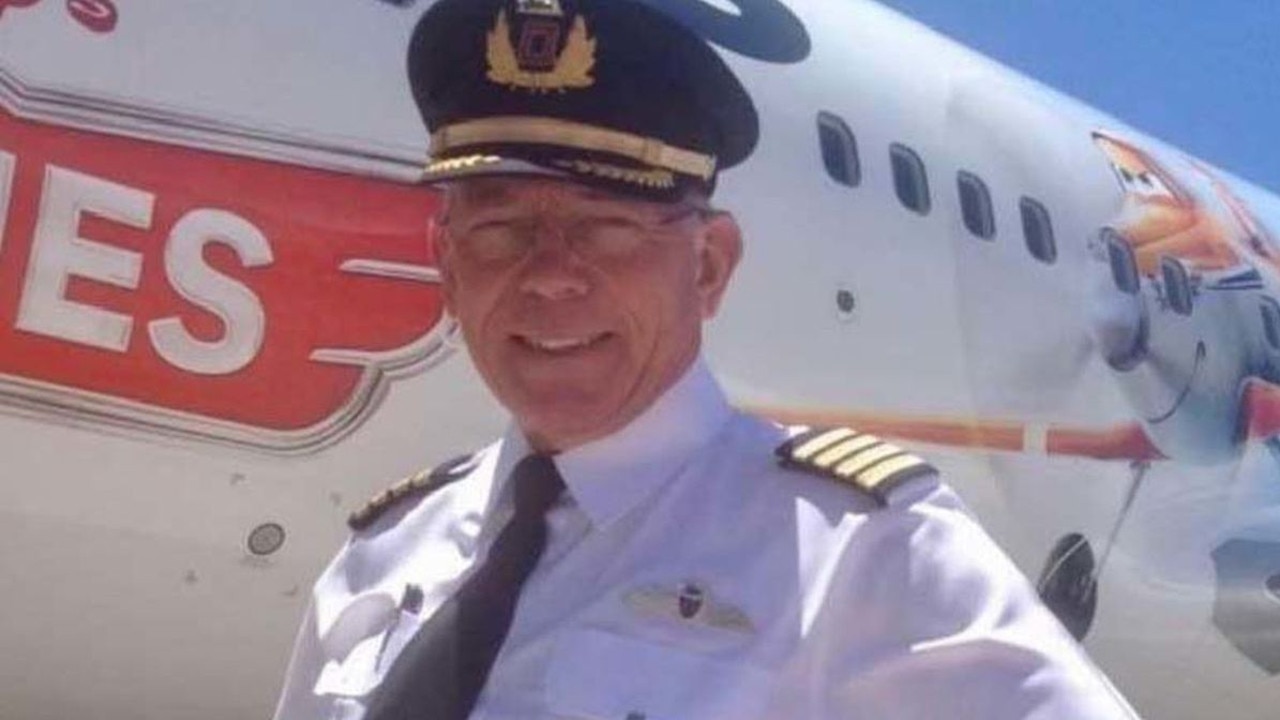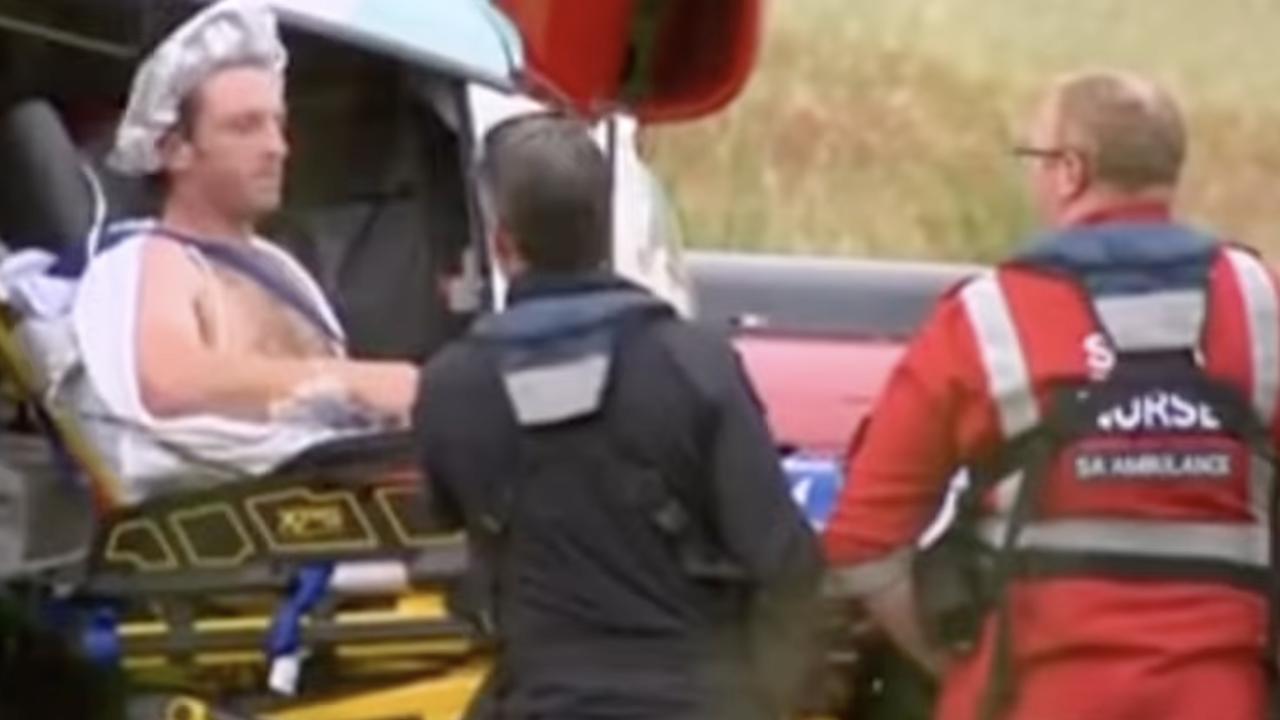Commuter chaos in Sydney and Blue Mountains as strikes, storms and landslide bring trains to halt
Continuing extreme weather in and around Sydney has continued to wreak havoc on the already struggling public transport network.
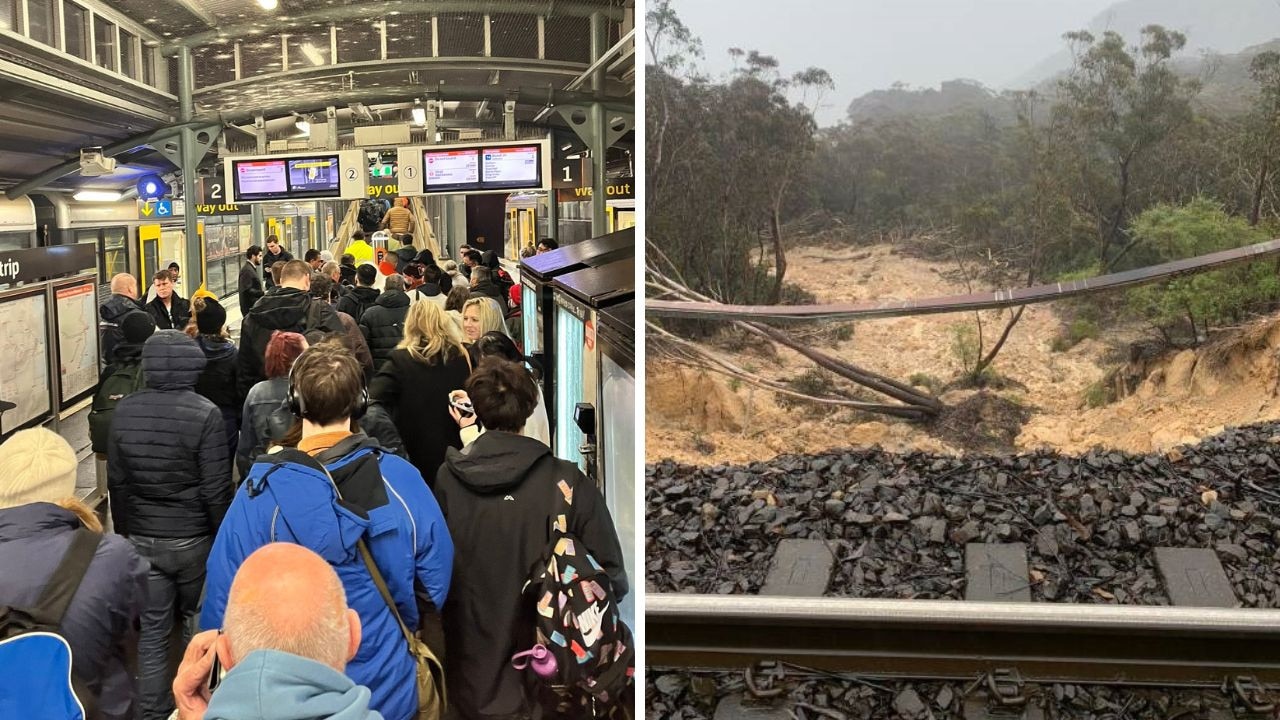
Ongoing torrential weather is set to again cause chaos for commuters, with industrial action continuing and a popular train line being almost completely swept away in a landslide.
The Fair Work Commission on Tuesday rejected a bid by the NSW government to put an end to rolling strikes that are expected to reduce train operations on Wednesday.
Tuesday’s ruling only applied to an interim order that would have forced an emergency end to Wednesday’s action, but further hearings on Thursday could yield a different result.
Sydney Trains chief executive Howard Collins said because of tough weather conditions, trains were operating at about 80 per cent capacity on Tuesday, and were expected to dip to about 60 per cent on Wednesday.
“Obviously if you can avoid travel tomorrow and remain at home or not go to work that’d be great,” he said on Tuesday.

“If you’re travelling early tomorrow, check before you travel, make sure your train is running. And if you can, delay your journey, particularly in the peak where we expect we’ll be under the most pressure in terms of people travelling.”
Meanwhile in the Blue Mountains, the ground has given way near train tracks in Blackheath causing the line to be swept away in a landslide.
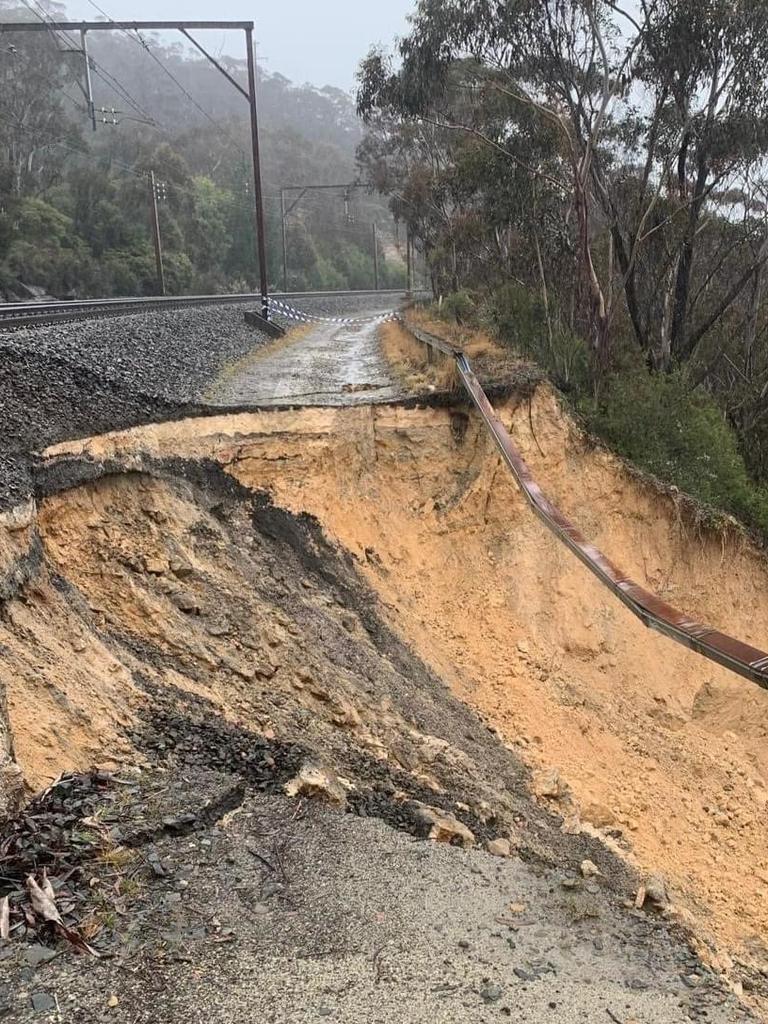
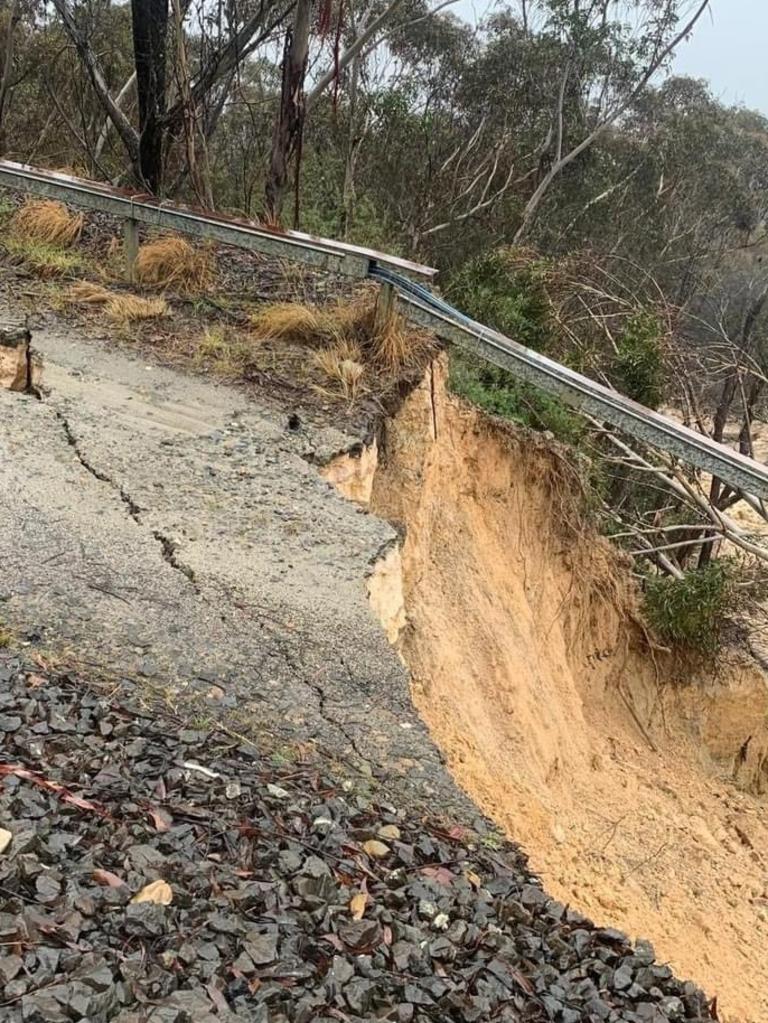
Services have been cancelled between Katoomba and Mount Victoria and it’s expected to take weeks, if not months, to be reinstated.
“This may take weeks to repair, with the initial inspections showing the landslip is up to 40 metres long, 20 metres wide and 60 metres deep,” Transport for NSW said.
Passengers will be unable to travel across the Blue Mountains as a result of its main western rail line being almost swept away.
MORE DELAYS, GREAT WESTERN HIGHWAY NEAR EXPLORER'S TREE:
— Total Appliance Repair Centre (@zeze2756) July 5, 2022
Motorists are experiencing lengthy delays westbound on the Great Western Highway between Katoomba and Medlow Bath following another landslip. pic.twitter.com/HmSZaPcwBD
Both worker strikes and the extreme weather, which has been declared a natural disaster, are expected to continue, causing major disruptions across Greater Sydney, the Hunter and Wollongong onwards from Wednesday.
The Dubbo and Broken Hill XPT services to and from Sydney have been replaced by buses where possible, while buses will also replace services between Lithgow and Bathurst, where they are available.
Significant disruptions are also set to continue on the South Coast Line.
Buses will replace trains between Schofields and Richmond due to flooding on the tracks, with replacement buses to collect and drop off from Schofields and Richmond Stations.
The city’s Western Line will be running at a reduced frequency, with some trains to be cancelled between Emu Plains and Central, and between Schofields and Blacktown.
The worst of the flooding affected surrounding areas of the Hawkesbury-Nepean river system that snakes its way around western and northern Sydney.
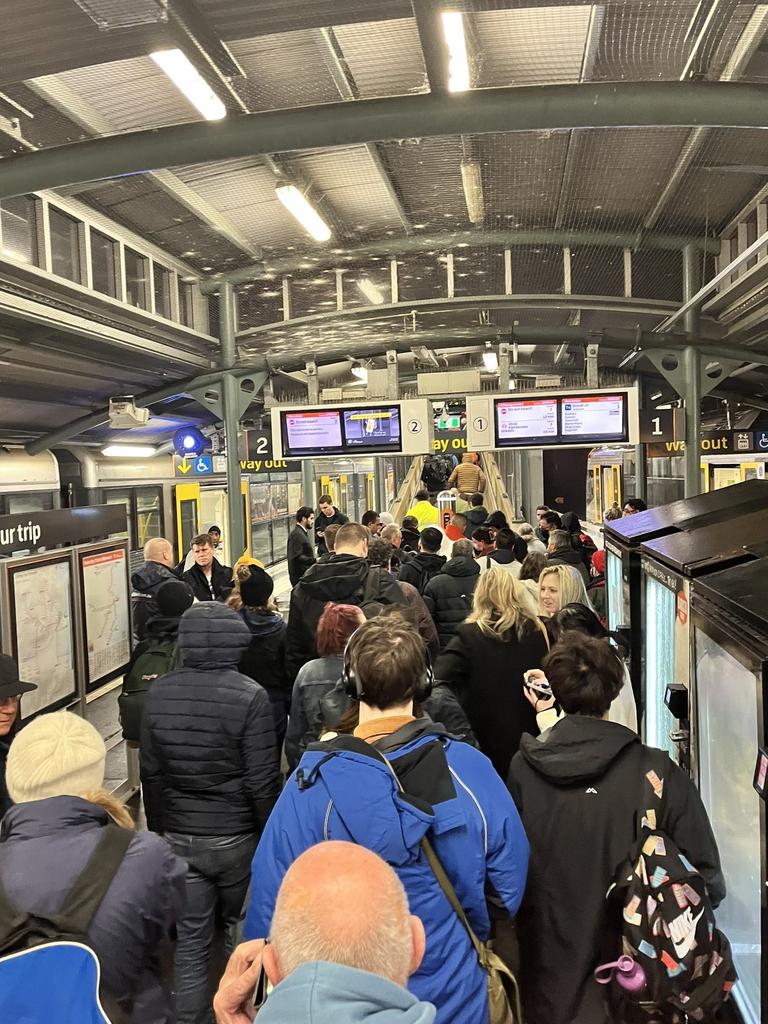
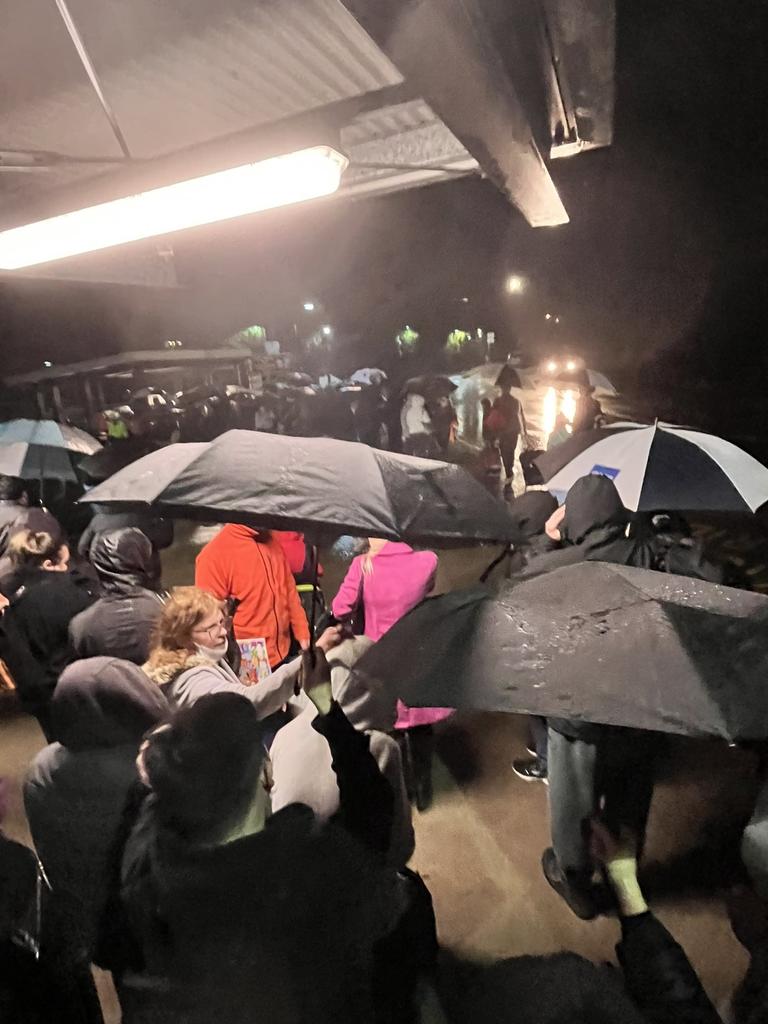
“As a whole, this is the worst of the flood events for the catchment, as other events were particularly bad, but in just one portion of the river system,” Sky News Weather meteorologist Rob Sharpe said.
“This event is consistently bad across the whole catchment with multiple areas now worse than in recent years.”
Windsor, on the city’s north western fringe, saw the river rise to just above the 13.8 metre high point from March’s floods, making it the area’s worst flooding for 44 years.
Following the state government declaring the weather event a natural disaster, means-tested emergency funding can be distributed to people in 23 affected local government areas.
The SES on Wednesday began issuing evacuation orders for areas around the Central Coast and Hunter regions.
People in parts of Combo, Whittingham, Glenridding, Dunnolly, Tuggerah, Budgewoi Lakes and Wollombi have been asked to leave their homes.




